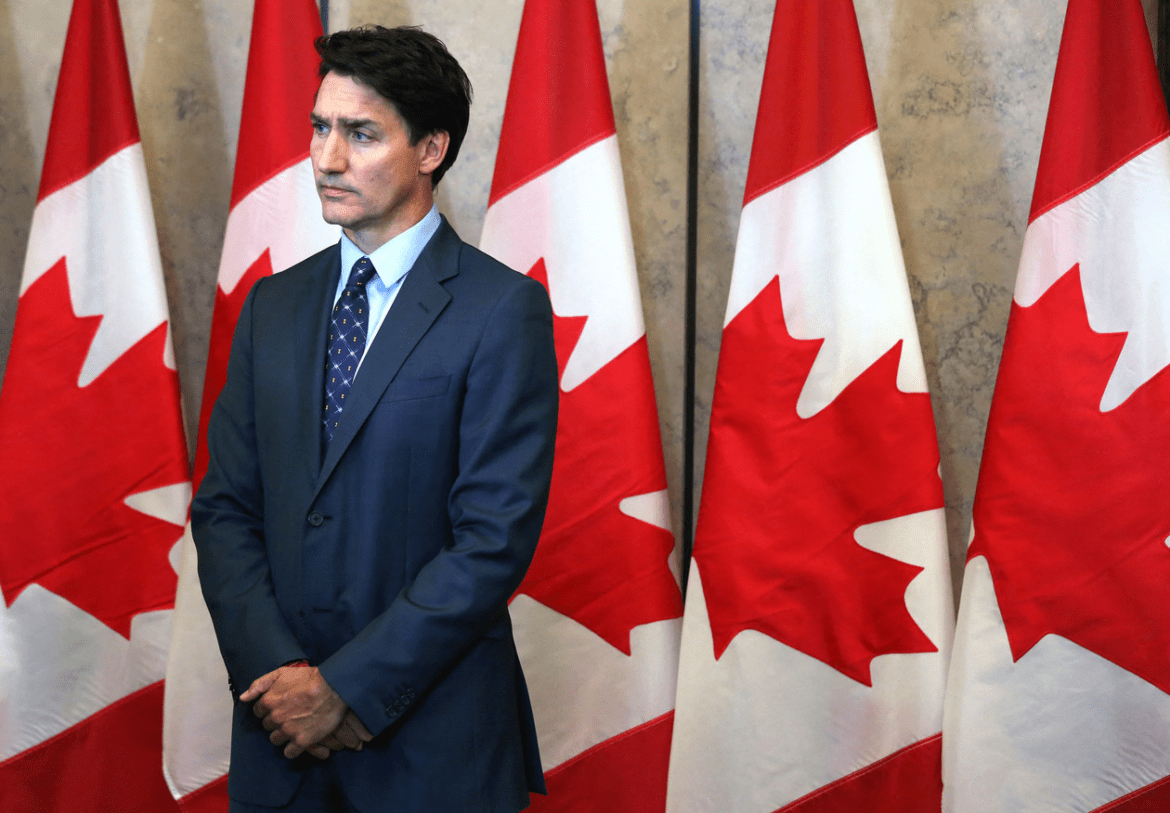AI Generated Summary
- At the core of the diplomatic dispute is the question of whether Hardeep Singh Nijjar, who was killed outside a Gurdwara in Surrey in June 2023, was a Khalistani terrorist or merely a community activist.
- In a recent development in the ongoing diplomatic spat between India and Canada, Canadian journalist Daniel Bordman has voiced strong criticism of Prime Minister Justin Trudeau’s handling of the Khalistan issue.
- While India has long regarded Nijjar as a terrorist, with its National Investigation Agency designating him as such in 2020, Canada has largely portrayed him as a prominent figure within the Sikh community.
In a recent development in the ongoing diplomatic spat between India and Canada, Canadian journalist Daniel Bordman has voiced strong criticism of Prime Minister Justin Trudeau’s handling of the Khalistan issue. Bordman described Trudeau’s acknowledgment that Canada’s claims regarding Indian involvement in the killing of Khalistani activist Hardeep Singh Nijjar were based on intelligence rather than concrete evidence as a significant victory for India’s narrative.
“This is a pretty big win for the Indian narrative right now,” Bordman said, referencing the tensions between the two nations. “From the Canadian perspective, we had gone pretty hard. We had kicked out a diplomat, named the Indian High Commission, and started this publicly.” The journalist pointed out that this aggressive approach from Canada now faces serious questions, particularly regarding the evidence—or lack thereof—behind the claims.
#WATCH | On Government of India's decision to withdraw High Commissioner and other targeted diplomats and officials from Canada, Canadian journalist Daniel Bordman says, "…There are elements within the Khalistani apparatus, they are all over this…The Khalistani elements are… pic.twitter.com/xdL0uNzm3R
— ANI (@ANI) October 14, 2024
At the core of the diplomatic dispute is the question of whether Hardeep Singh Nijjar, who was killed outside a Gurdwara in Surrey in June 2023, was a Khalistani terrorist or merely a community activist. While India has long regarded Nijjar as a terrorist, with its National Investigation Agency designating him as such in 2020, Canada has largely portrayed him as a prominent figure within the Sikh community. This disagreement, Bordman noted, remains unresolved despite the current political back-and-forth.
“On the geopolitical technicality aspect, India wins here because Canada never said it had hard evidence. But the bigger question remains unanswered: Was Hardeep Singh Nijjar a Khalistani terrorist or a community activist? That general disagreement has not moved,” Bordman explained.
Bordman went further in his critique of Trudeau, particularly with regard to the prime minister’s claims of supporting India’s territorial integrity. Despite Trudeau’s public statements against Khalistani separatism, Bordman argued that the prime minister’s actions have often contradicted his words.
“Trudeau says things and then Trudeau does things,” Bordman said. “Often, what Trudeau says he is doing does not match the reality of what he is doing. He might claim that he is against Khalistani separatism, but he would also promote it. It’s not outlandish to assume he is being untruthful when he says he is doing one thing but actually doing another.” This, Bordman suggested, is consistent with Trudeau’s broader reputation, alluding to past controversies and growing unpopularity.
The diplomatic tensions between Canada and India escalated sharply last year after Trudeau told the Canadian Parliament that his government had “credible allegations” of Indian involvement in Nijjar’s killing. India has categorically denied these allegations, calling them “absurd” and “motivated,” and has accused Canada of providing a haven for extremist and anti-India elements.
During testimony at Canada’s foreign interference inquiry, Trudeau admitted that the Canadian government had not presented hard evidence to India regarding its claims. Instead, the allegations were based on intelligence. “Behind the scenes, we were trying to get India to cooperate with us. Their ask was… give us the evidence you have. Our response was, ‘It is within your security agency. You should be looking into how much they know.’ But it was primarily intelligence, not hard evidentiary proof,” Trudeau said.
India’s Ministry of External Affairs (MEA) swiftly responded to Trudeau’s remarks, with spokesperson Randhir Jaiswal stating that Trudeau’s comments only confirmed what India had been saying all along. “Canada has presented us no evidence whatsoever in support of the serious allegations it has levelled against India and Indian diplomats,” Jaiswal said. He went on to criticize Trudeau’s “cavalier behavior,” holding him responsible for the damage caused to India-Canada relations.
“The responsibility for the damage that this cavalier behavior has caused to India-Canada relations lies with Prime Minister Trudeau alone,” Jaiswal added.
Relations between the two countries have continued to sour, with both sides expelling diplomats and India recalling its High Commissioner from Canada. The row erupted after Canada labelled India’s High Commissioner and other diplomats as “persons of interest” in Nijjar’s death investigation, prompting India to take reciprocal action by expelling six Canadian diplomats.
The diplomatic crisis between India and Canada shows no signs of easing, as both nations remain entrenched in their positions. India has warned that it reserves the right to take further steps in response to what it perceives as the Trudeau government’s support for extremism and separatism. As the situation evolves, Bordman’s criticism highlights the growing internal and external pressure on Trudeau’s government to clarify its stance and actions on the issue.




